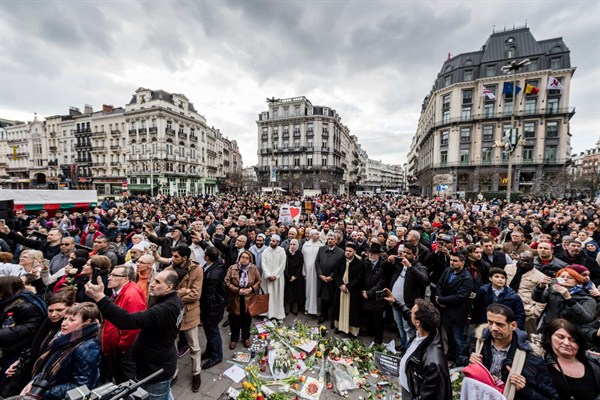One year ago, a series of terrorist attacks struck the Brussels international airport and a metro station, killing 35 and injuring hundreds. The incident occurred just months after Belgium was thrust into the center of discussions about the terror threat facing Europe, when it was revealed that a Belgian national had coordinated attacks on a concert hall and other sites in Paris, killing 130 people and injuring hundreds more. That man, 27-year-old Abdelhamid Abaaoud, was among the many Belgian citizens who had gone to Syria and Iraq to fight with the so-called Islamic State, making Belgium Europe’s largest per capita exporter of jihadis.
Criticism of the country’s lackluster security apparatus—and of European security more broadly—ensued, prompting a revamping of domestic security laws that has worried human rights groups. Following the attacks, the government deployed thousands of soldiers to major cities, and police conducted hundreds of raids, which human rights investigators say have led to beatings and the excessive use of force.
The counterterrorism push also included a law allowing dual nationals to be stripped of Belgian citizenship. In July 2015, the penal code was amended to criminalize the act of leaving Belgium with “terrorist intent,” a vaguely worded provision that compounded concerns raised by another measure allowing the government to suspend or withhold passports and identity cards without prior judicial review. In a detailed report published in November 2016, Human Rights Watch argued that new security measures threaten fundamental rights.

